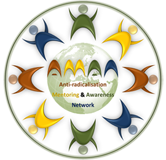Beneficiaries: Teachers, Parents and Youth
Partner organisations: Excelsior Academy, Arthur’s Hill Federation of Primary Schools; Counter-terrorism Police
AMAN interventions include a series of training aimed at strengthening individuals’ self-esteem and to increase agency (perceptions of competence, effectiveness, personal control, and capacity to make things happen), perspective taking skills (the cognitive ability to anticipate the behaviour and reactions of other people), and empathy to create a reduction in perceptions of deprivation and disconnectedness to society. Together these changes are expected to result in more resilience against radicalization and extremism.
Besides that trainings focussing on developing skills for team working and positive interaction within groups and communities can impart a wide range of learning experiences and positive activities at young people. By this we mean, the ability to listen to others, communicate clearly without causing offence to others, to work collaboratively to achieve a shared goal, negotiate with others, have patience in working with others who may have a different level of ability, etc. These skills are seen to have particular importance in the context of building resilience to extremism.
Finally, trainings and workshop aim to train teachers and parents with tools and techniques enabling them to help the youth in school and at home in building resilience to extremism. It is expected parent able to monitor their children’s use of internet and social media would be able to safeguard them from being exposed to extremist propaganda. On the other hand, enlightened young people able to think critically, control emotions and resolve conflicts would be ideally placed to challenge extremist narratives in educational institutions and wider communities.
To sum up, the mentoring and awareness approach combining interventions at individual, family, educational and community levels would help to create the knowledge, confidence and abilities need to build resilient individuals and communities.

